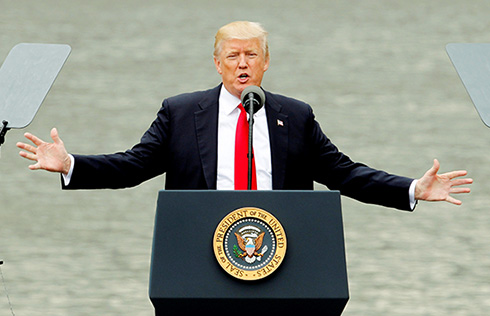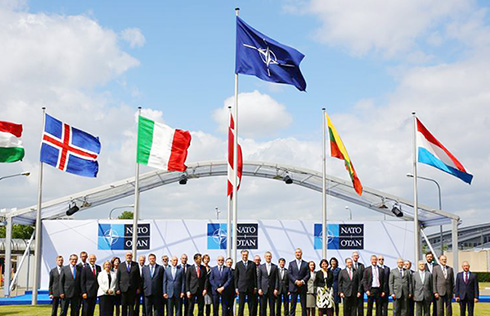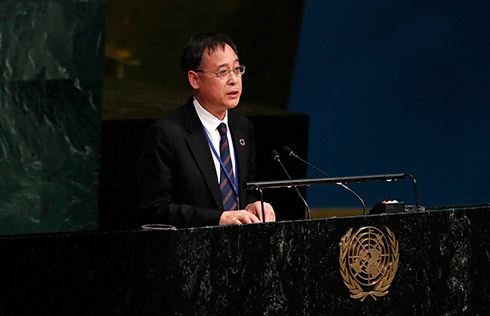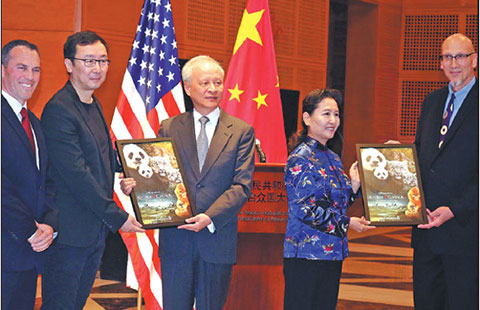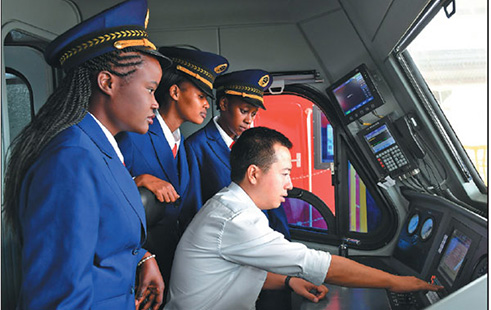'Shanghai Spirit', secret of SCO's success
BEIJING - The secret of the success of the Shanghai Cooperation Organization (SCO) in ensuring regional peace and stability and in driving regional economic growth lies in its underlying principle -- the "Shanghai Spirit," foreign experts and observers have said.
Calling it an important guarantee for the expansion of the SCO, Askar Nursha, a researcher of Kazakhstan's Institute of World Economy and Politics, said he believes that the "Shanghai Spirit" has been the secret of the successful development of the SCO.
"Under the guidance of the 'Shanghai Spirit,' all member states are equal and committed to forging good neighborliness and sincere partnership with each other," Nursha told Xinhua in a recent interview.
All decisions of the SCO are made through discussions and dialogues."The SCO regularly conducts various events, educational seminars and meetings where the representatives of the law enforcement agencies share their best practices and work out a common plan of action, applying maximum efforts to prevent terrible tragedies with irreparable consequences," he said.
The "Shanghai Spirit," as the founding values of the SCO, features mutual trust, mutual benefit, equality, consultation, respect for cultural diversity and pursuit of common development.
The set of core principles have promoted the development of the SCO for the benefit of not only its members but also regional peace and stability, Li Huilai, assistant foreign minister of China, said at a press conference on Monday.
Chinese Foreign Minister Wang Yi has also pointed out that the robust development momentum of the SCO demonstrates the organization's "unique strategic value," which offers strong protection of the security and interests of its member states.
Later this week, India and Pakistan, two SCO observers, will be granted full-fledged membership at the 17th SCO summit in Astana, capital of Kazakhstan.
The two South Asian countries signed the bloc's Memorandum of Obligations in June 2016, marking the start of the process of their accession.
With the accession of the two countries, Li noted, the SCO will cover three-fifths of the Eurasian continent with nearly half the world population, which will make the regional organization the biggest in terms of area and population in the world and further improve its potential for cooperation and representation.
In this regard, Nursha pointed out that it is a testament to the increasing global influence of the SCO that many countries have expressed willingness to join.
"The accession of India and Pakistan will add to the SCO's international reputation and allow the bloc to better coordinate the positions of its member states on various issues, so as to enhance their cooperation," he said.
Russian President Vladimir Putin expressed similar views in an exclusive interview with Xinhua last year. He stressed that the SCO would become "an authoritative and popular international organization in the region and the world at large" with the participation of India and Pakistan.
Since its establishment, the SCO has been a crucial platform for stakeholders to strengthen security cooperation and combat the "three evil forces" of terrorism, separatism and extremism, according to Nursha.
Pakistan's primary goal to join the SCO is to boost security cooperation, according to Zafar Nawaz Jaspal, a professor at the Department of Politics and International Relations of the Islamabad-based Quad-i-Azam University.
Under the current international circumstances, it is very hard for a single country to wipe out terrorism, he said, adding that reducing violence and terror attacks requires reinforcing cooperation.
Besides the focus on security, Nursha said that successful multilateral projects between SCO members have also contributed to improving global economic climate.
The six current members of the SCO -- China, Kazakhstan, Kyrgyzstan, Russia, Tajikistan and Uzbekistan -- are all located along the ancient Silk Road.
On economic cooperation, Alexey Maslov, head of the Oriental Studies Department at the Russian Higher School of Economics Research University, highlighted several fields that the SCO could push forward.
The SCO should help remove any barriers to the free flow of commodities and eliminate tariff barriers and explicit protectionist measures within the region and beyond, he suggested.
Meanwhile, he added, the SCO needs to inject vigor into regional and global economy by encouraging the establishment of joint ventures, free trade areas and joint high-tech zones.
"It would be possible for SCO countries to create joint ventures and sell their products to third countries outside the SCO," he said. "Such joint ventures should receive tax incentives or noticeable relief within the framework of the SCO."








